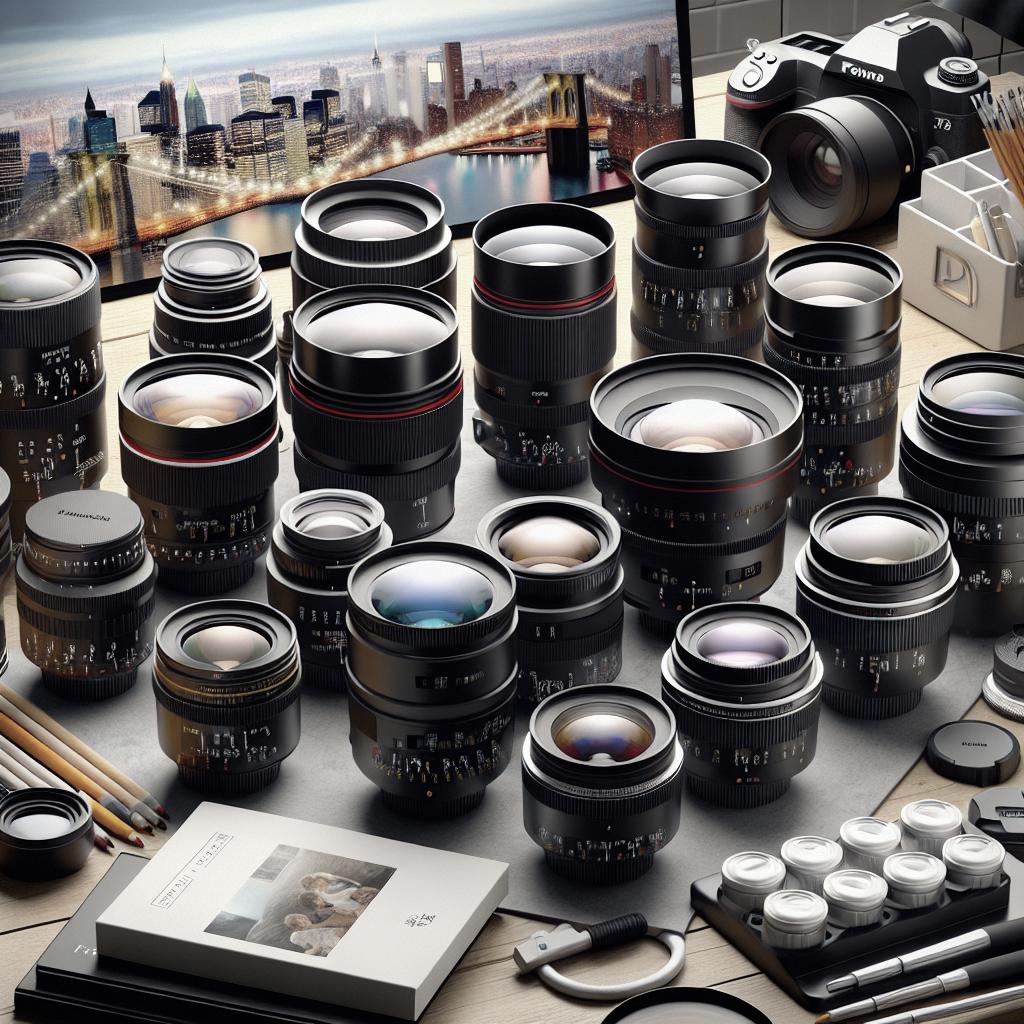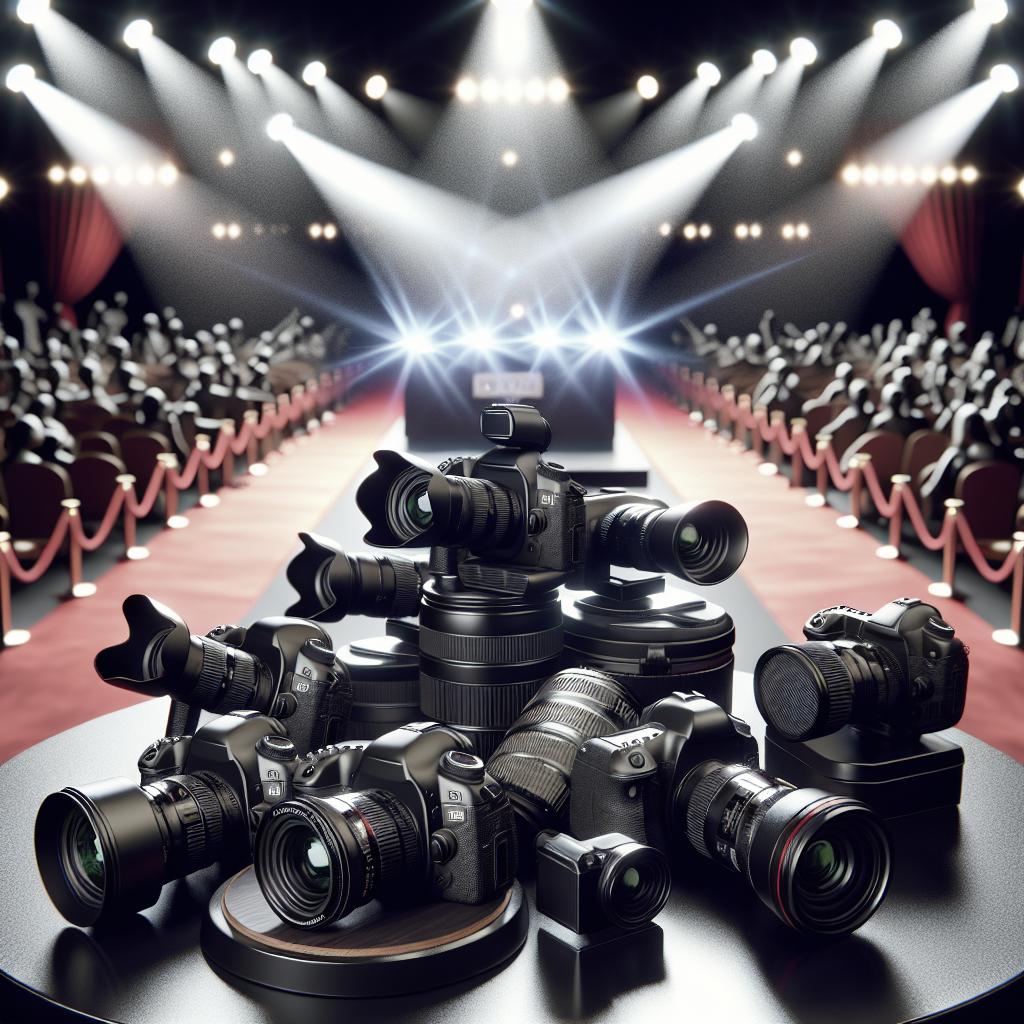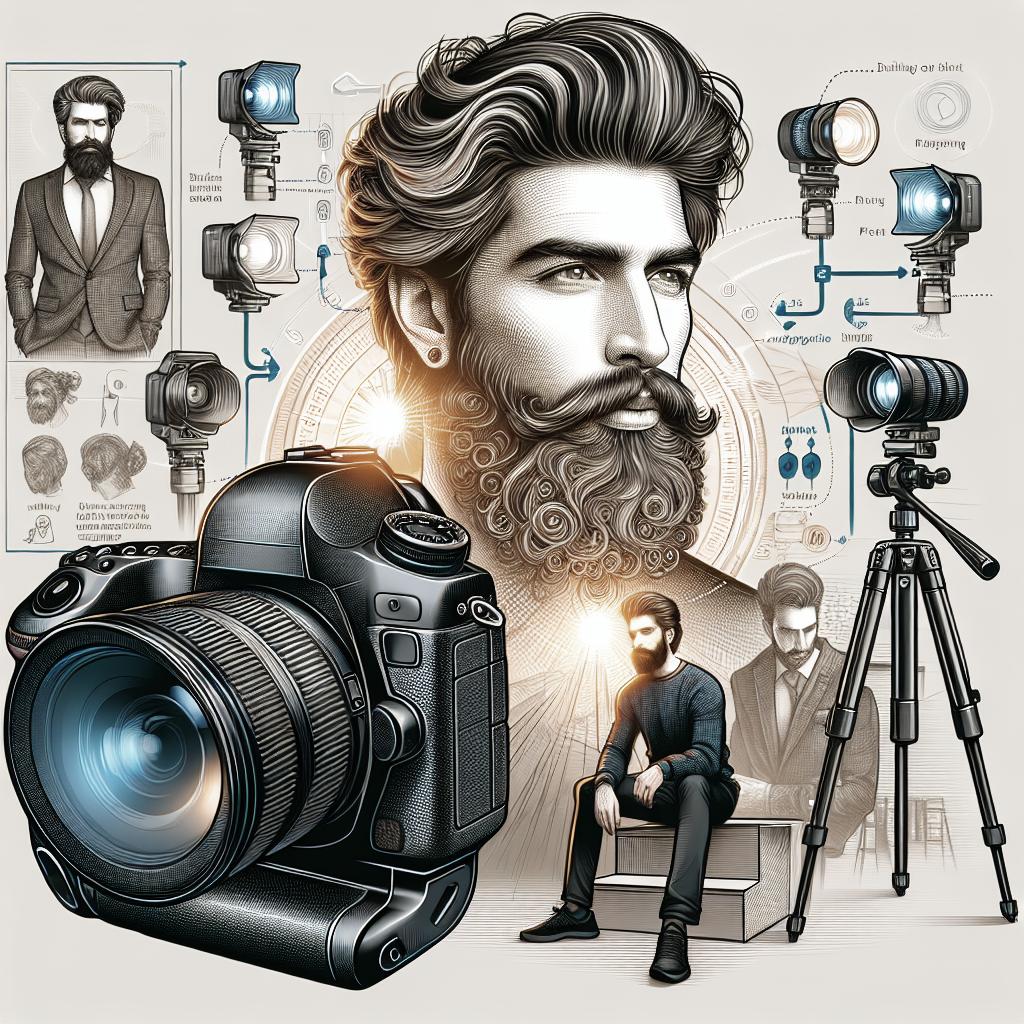<>
Best Lens for Portrait Photography
Capturing the essence of a person through portrait photography demands the right equipment, with the lens playing a pivotal role. With a myriad of lenses available, it’s vital to choose the one that matches your artistic vision and technical needs. This blog post dives into various lenses suited for portrait photography, categorized by focal lengths: 35mm, 50mm, 85mm, and zoom lenses like 70-200mm. We will break down the attributes, advantages, and considerations for each type, guiding you towards the optimal choice for crisp, beautifully detailed portraits.
What is the Best Lens for Portraits?
Selecting the best lens for portraits hinges on the kind of images you’re envisioning. The best lens is one that provides the desired background blur (bokeh), clarity, and sharpness, while offering versatility for different shooting scenarios. Prime lenses are lauded for their excellent image quality, whereas zoom lenses offer flexibility in framing and composition. Portrait photographers often lean towards lenses with large apertures (f/1.2 – f/2.8) because they create a shallow depth of field, resulting in beautifully blurred backgrounds and sharp subjects. Moreover, lenses with focal lengths between 50mm and 135mm are traditionally popular for portraits as they render flattering proportions and perspectives.
Watch: Shot List — Camera Lenses
Before delving deeper, watch our curated shot list video on camera lenses, where experts discuss the characteristics and use-cases of various lenses for portrait photography. This visual guide showcases the practical applications and results you can achieve with each lens type, providing a comprehensive understanding.
Best Type of Lens for Portraits
Choosing the best type of lens for portrait photography is subjective and depends on multiple factors including the environment you shoot in, the style you prefer, and your budget. While prime lenses like 50mm and 85mm are favored for their sharpness and bokeh, zoom lenses are invaluable in dynamic and unpredictable settings.
Things to consider
When selecting a lens, consider the aperture size since a larger aperture allows more light to enter, essential for low-light conditions and achieving a soft, creamy bokeh. Evaluate the lens build quality, focusing speed, and weight, as heavier lenses may cause fatigue during prolonged shoots. Additionally, factor in the compatibility with your camera body and future upgrade plans. Moreover, price is an essential consideration. High-end lenses can be expensive but offer significant advantages in image quality. If you’re starting, budget-friendly lenses can still provide excellent results, making them suitable for honing your skills before upgrading.
Good Portrait Lenses
One of the classic choices for portrait photography is the 35mm lens. Known for its versatility and ability to capture environmental context while maintaining subject prominence, 35mm lenses are treasured by photographers who enjoy narrating a story through every frame.
35mm Lenses
35mm lenses offer a field of view close to human vision, allowing natural-looking portraits that include background elements to add depth and context. They are perfect for full-body portraits and environmental portraits where the setting plays a crucial role in the narrative. Despite being a wider focal length, 35mm lenses can produce beautiful bokeh, especially those with larger apertures like f/1.4. These lenses are lightweight and compact, making them excellent choices for on-the-go shooting or events where you need to move quickly and capture spontaneous moments.
Best Photos Lens for Portraits in Mid Distance
Another popular choice for portrait photography is the 50mm lens. Often hailed as the “nifty fifty,” this lens is adored for its simplicity, affordability, and excellent image quality.
50mm Lenses
50mm lenses are incredibly versatile, ideal for a range of portrait styles from headshots to half-body portraits. They strike a perfect balance between providing sufficient subject isolation and including some background detail, perfect for capturing contextual details without causing distortion. With large maximum apertures (f/1.4 or f/1.8), 50mm lenses create beautiful background separation while allowing abundant light into the sensor, indispensable for shooting in various lighting conditions. They are light, compact, and usually more affordable, making them a fantastic starting point for beginners.
Perfect Portrait Lenses
For photographers looking to achieve professional-grade portraits with superb subject isolation and flattering compression, the 85mm lens is often the top choice.
85mm lenses
85mm lenses are hailed for their ability to render faces with flattering proportions, minimizing distortion while providing enough working distance between the photographer and the subject. This focal length excels in headshots and upper-body portraits, offering a tighter composition with exceptional background blur. With their typically large apertures, 85mm lenses deliver stunning bokeh and sharpness, ideal for isolating the subject against a beautifully creamy background. These lenses also boast excellent build quality and focusing speed, making them a preferred choice amongst professional photographers.
Best Focal Length for Portraits Zoomed
For ultimate versatility and reach, a 70-200mm lens is invaluable in portrait photography. These zoom lenses cover a broader focal length range, allowing seamless transitions between mid-distance and tightly-framed portraits without swapping lenses.
70-200mm lenses
70-200mm lenses provide unparalleled flexibility and picture quality, perfect for both outdoor and indoor shoots. The ability to zoom in and out enables you to adapt quickly to different scenarios—from candid shots to structured portraits—without losing rhythm. These lenses are known for their consistent performance throughout the focal range, offering impressive image sharpness and bokeh. Despite their weight and larger size, the advantages of covering multiple portrait styles with one lens make them indispensable tools for serious photographers.
UP NEXT
Just as color provides vibrance to portraits, black and white photography offers a timeless quality, imbued with emotion and depth. Our next blog post will explore the nuances of black and white portrait photography, uncovering techniques and insights to master this classic style.
Black and White Portrait Photography
Black and white portrait photography strips away the distractions of color, focusing on texture, contrast, and the play of light and shadows. This medium emphasizes the subject’s expressions and features, revealing raw emotions and a timeless essence. We will delve into camera settings, lighting techniques, and compositional tips that elevate your black and white portrait game.
Showcase your vision with elegant shot lists and storyboards.
Elevate your portrait photography by meticulously planning each shot and narrative element. Utilize shot lists and storyboards to map out your creative vision, ensuring a cohesive and powerful presentation. This structured approach allows you to focus on the artistic aspects, ensuring each frame aligns with your storytelling goals.
| Lens Type | Focal Length | Best For | Advantages |
|---|---|---|---|
| 35mm Lenses | 35mm | Environmental Portraits | Natural Field of View, Lightweight, Good Background Context |
| 50mm Lenses | 50mm | Versatile Portraits | Affordable, Good Bokeh, Excellent Image Quality |
| 85mm Lenses | 85mm | Professional Headshots & Upper-Body Portraits | Flattering Compression, Superb Bokeh, Sharpness |
| 70-200mm Lenses | 70-200mm | Flexible Portraits | Versatile, Excellent Image Quality Across Zoom Range |


